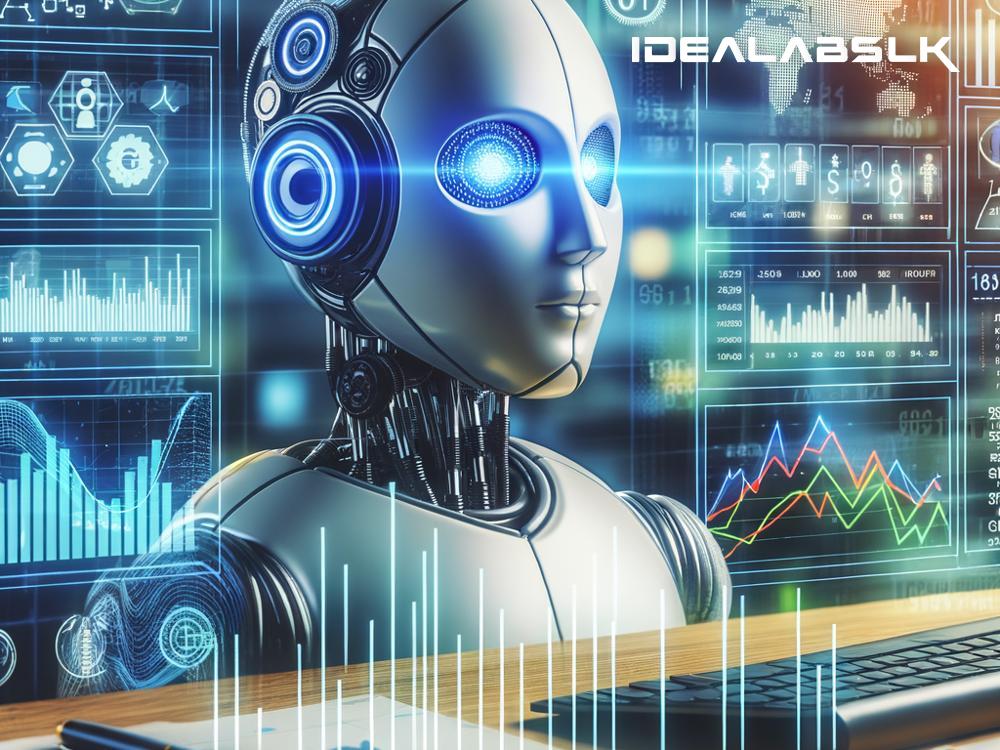AI in Trading: Navigating the Future with Big Data Solutions for Market Prediction
The digital revolution has brought about a significant transformation in various sectors, and the financial market is not an exception. The introduction of Artificial Intelligence (AI) in trading has been a game-changer, offering innovative solutions for market prediction through the analysis of big data. This blog explores how AI and big data are redefining the trading landscape, making market predictions more accurate and efficient than ever.
Understanding AI in Trading
At its core, AI in trading involves the use of computer algorithms and machine learning techniques to analyze vast amounts of data for making predictions about future market movements. Unlike traditional trading strategies that rely heavily on human analysis and intuition, AI trading systems can process and analyze data at a scale and speed that is humanly impossible. This allows traders and investors to make more informed decisions, potentially leading to more profitable outcomes.
The Power of Big Data in Market Prediction
Big data refers to the incredibly vast and complex datasets that are generated in our digital world every second. In the context of the stock market, this could include historical stock prices, news articles, social media posts, economic reports, and much more. The challenge has always been to make sense of this overwhelming amount of information in a way that can influence trading decisions. This is where AI and machine learning come into play.
Machine learning algorithms can sift through these diverse data sources, identify patterns and trends, and learn from them to predict future market movements. For example, a change in the sentiment on social media regarding a particular company could be an early indicator of a change in its stock price. AI systems can detect such sentiment shifts much faster than a human could, allowing traders to adjust their positions accordingly.
How AI is Changing the Game
-
Speed and Efficiency: AI can process information and execute trades at a speed that is impossible for human traders, reducing the time it takes to react to market changes.
-
Removing Human Bias: Emotional decision-making can often lead to costly mistakes in trading. AI, on the other hand, makes decisions based solely on data and preset criteria, removing the emotional bias from trading decisions.
-
Enhanced Accuracy: By continuously learning from new data, AI algorithms can improve their accuracy over time, potentially leading to more successful trading outcomes.
-
24/7 Trading: Unlike human traders who need to sleep, AI systems can operate around the clock, ensuring no trading opportunity is missed due to time constraints.
Practical Applications of AI in Trading
Many traders and institutions are already harnessing the power of AI for market prediction. Some practical use cases include:
- Algorithmic Trading: Using AI algorithms to execute trades based on pre-defined criteria, maximizing efficiency and minimizing costs.
- Risk Management: AI can assess potential risks and adjust trading strategies accordingly, helping traders minimize losses.
- Sentiment Analysis: Analyzing vast amounts of data from news and social media to gauge public sentiment towards certain stocks or the market in general.
- Portfolio Management: AI can assist in creating and managing diversified portfolios, constantly adjusting them based on market conditions to optimize returns.
The Future of AI in Trading
As technology evolves, the role of AI in trading is set to become even more significant. Future developments might include more sophisticated AI models capable of understanding and reacting to complex market phenomena, further integration of AI with other emerging technologies like blockchain, and even more personalized trading experiences for individual investors.
However, it's important to acknowledge that with great power comes great responsibility. As AI becomes more integral to trading, issues around transparency, ethics, and data privacy will become increasingly important. It's crucial for regulators, industry players, and technologists to work together to ensure that the benefits of AI in trading are realized in a way that is fair and responsible.
Closing Thoughts
The integration of AI and big data in trading is transforming the way we understand and participate in the financial markets. By leveraging these technologies, traders can make more informed, efficient, and accurate decisions, potentially leading to better outcomes. As we move into the future, it's clear that AI will continue to play a pivotal role in shaping the landscape of trading, offering exciting possibilities for market prediction and beyond.

